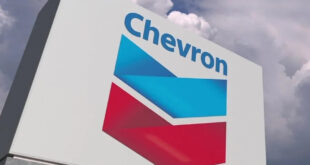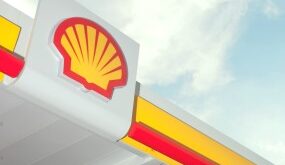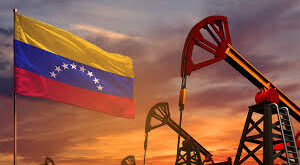The Shell-led Basrah Gas Co. (BGC) will start up a long-delayed project in Iraq next week that should slash the high volumes of associated gas flared at the country’s giant southern oil fields and move it a step closer to ending costly gas imports from Iran.
The $3 billion project comprises two new trains that will each add 200 million cubic feet per day to BGC’s existing gas-processing capacity of 1 billion cubic feet per day.
The new trains will capture gas that is currently flared at three oil fields awarded in Iraq’s first licensing round after the US-led invasion in 2003 — Zubair, West Qurna-1 and Rumaila.
Those fields, and others that were subsequently awarded, lacked the infrastructure to process associated gas, and their operators — respectively, Eni, Exxon Mobil and BP — had no legal obligation to build it, which explains Iraq’s poor record on gas flaring.
In recent years, Iraq has consistently sent more gas up in smoke than any other country except Russia.
“We are burning money on a daily basis. We burn 1,200 MMcf/d of gas and we import 1,000 MMcf/d from Iran, which costs us at least $4 billion a year,” Prime Minister Shia al-Sudani told a conference in Baghdad earlier this month.
The first of the two new trains will be commissioned on May 31, with gas production ramping up over the summer, while the second train will come online early next year, a BGC spokesman told Energy Intelligence.
The BGC joint venture was formed a decade ago by Iraq’s South Gas Co. (51%), Shell (44%) and Mitsubishi (5%).
It describes itself as one of the largest flaring reduction projects in the world. It has tripled its gas processing capacity since 2013 and claims to have prevented more than 160 million tons of CO2 equivalent from entering the atmosphere
BGC’s expansion project should further cut Iraq’s emissions by 10 million tons of CO2e per year.
Delays and Controversy
The project has experienced chronic delays, including in 2020, when the oil price crash brought work to a halt and an incursion at the camp in Basrah forced Shell to evacuate its expatriate staff.
And last week Greenpeace published the controversial results of an investigation into a power supply deal that BGC signed in 2019 with the Jordan-based Shamara company — operator of the nearby 3,200 megawatt Rumaila independent power plant — to supply electricity for the two new gas-processing trains.
The Rumaila power plant was built by US-sanctioned Iranian firm Mapna, and Greenpeace claimed that 78% of the plant’s earnings go to Mapna, citing leaked documents that it had obtained.
There is no suggestion that Shell or Mitsubishi are in violation of US sanctions, as BGC pays the electricity ministry for the power that it consumes. Nevertheless, the Greenpeace investigation underlined the potential dangers that IOC operators face in Iraq.
Racing Against Time
The BNGL project is a milestone in Iraq’s efforts to accelerate the development of its neglected gas resources. Al-Sudani has said he hopes Iraq will be able to end its gas imports from Iran over the next three years.
Another major gas capture project — the 600 MMcf/d Gas Growth Integrated Project (GGIP) — is central to this endeavor, as are the gas fields now being developed by companies that were awarded upstream contracts in the 2018 licensing round after the contracts were finally signed earlier this year.
Like the BGCs expansion, GGIP has already suffered lengthy delays since it was awarded to TotalEnergies in 2021. But work could soon begin, and when it does, the French major estimates that it would take four years to complete.
Besides slashing imports from Iran, phasing out flaring and ending Iraq’s perennial power shortages, these gas projects could also provide feedstock for the Nebras petrochemical project, which was mothballed in 2015.
Al-Sudani said in February that his government was committed to reviving the Nebras project.
But given Iraq’s rapidly growing population and its soaring energy demand, the new gas projects will have to be implemented swiftly if the country is to achieve energy independence and have enough gas left over for an ambitious petrochemical project.

 Iran Energy News Oil, Gas, Petrochemical and Energy Field Specialized Channel
Iran Energy News Oil, Gas, Petrochemical and Energy Field Specialized Channel



